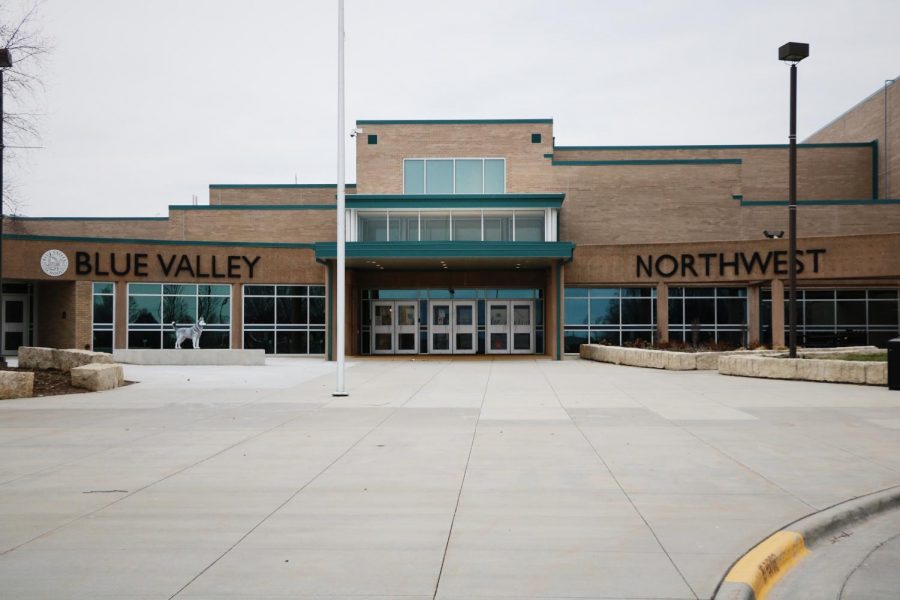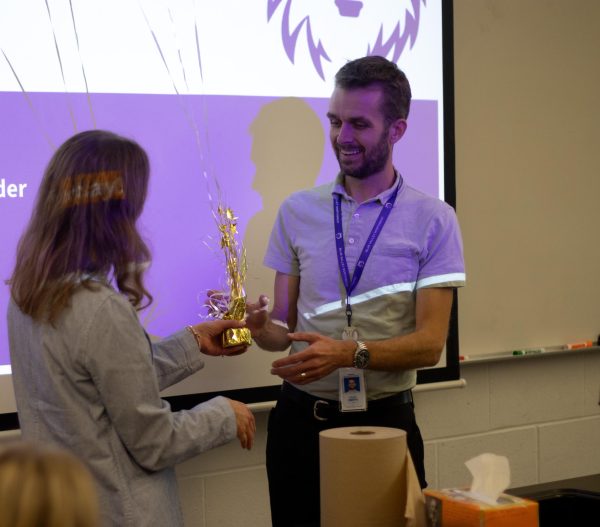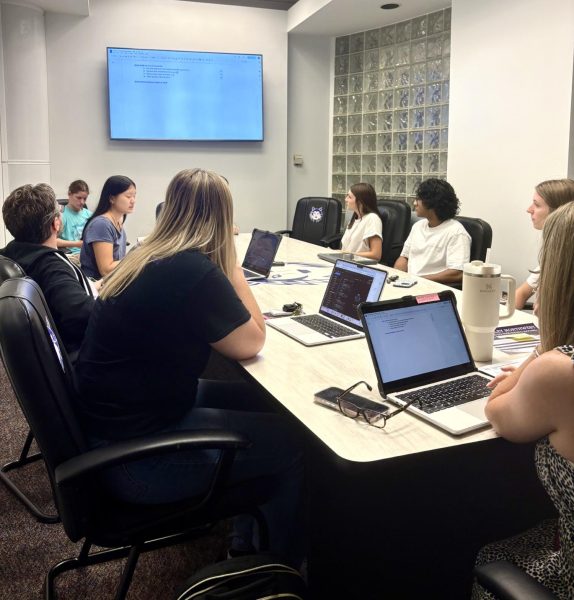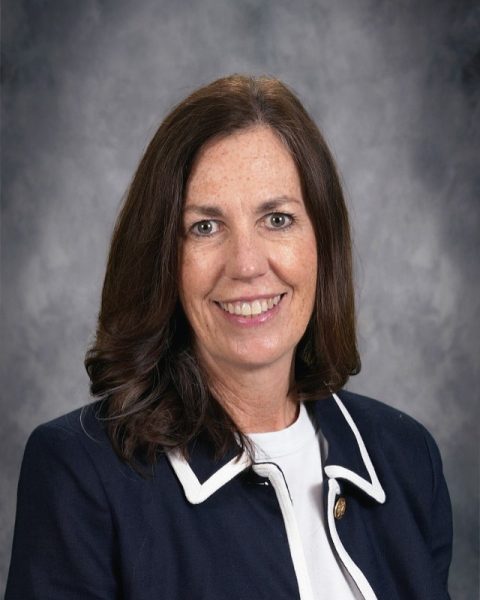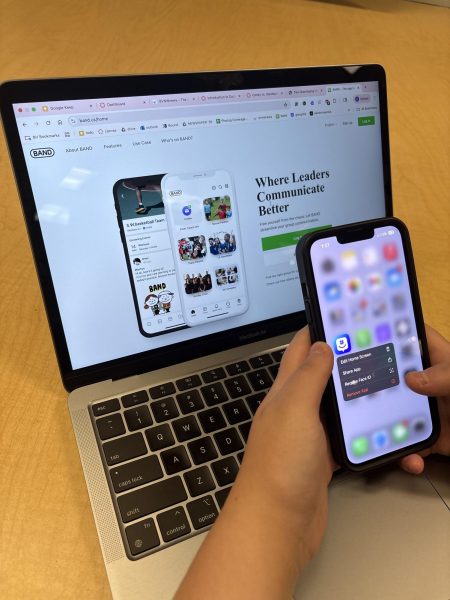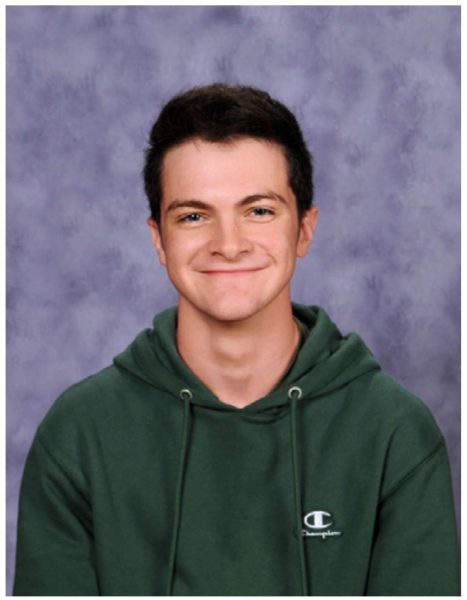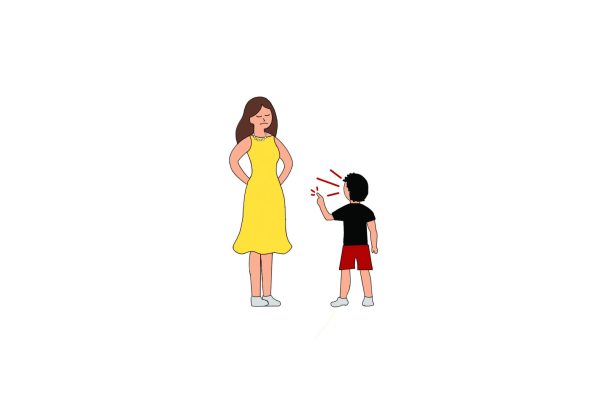BVNW to move to all block schedule
BVNW Principal Amy Pressly discusses how the 2020-21 school year will look different, including staggered arrival and dismissal, moving classes to an all block schedule and an 11 shift lunch schedule
Since the Blue Valley School District decided to follow Governor Laura Kelly’s plan to start school on Sept. 9, changes have been made to the school year schedule, including shortening winter and spring breaks.
Winter break will go from Dec. 23- Jan. 1 and spring break will be March 18-19. These shortened breaks are to make up for the later start to the school year.
As for what school will look like itself, Blue Valley announced they will be offering both in person and all-virtual learning options. If students were to take all-virtual, they are required to stay within the program for one semester, according to information sent to students and families.
The information also notes that with in-person school, all courses will be available and adjusted to comply with CDC guidelines.
In particular, Principal Amy Pressly said students who participate in classes such as PE or weights will be required to wear masks and socially distance during class activities. Pressly also said that the choir is looking to enforce social distancing.
In an email sent to choir students on July 29, choir director Elizabeth Richey-Sullivan said they are planning on rehearsing outdoors, maintaining social distancing and wearing masks.
As for how an individual school day will work, Pressly listed many steps and regulations that will be enforced. Among them are staggered arrival and dismissal for students, mandating masks be worn while inside the building and an odd and even block schedule.
A week could have two odd block days and three even block days or vice versa. Even block days will start at 8:30 a.m. instead of 9 a.m.
With the staggered arrival and dismissal, Pressly said they are looking at organizing it alphabetically by last name.
“We will kind of split people up by alphabet so we will ask you if you are this letter to that letter, to arrive from here to here kind of thing,” Pressly said.
She continued to describe this process by saying once students arrive at school, they will go straight to their first class of the day and have their temperature taken. If their temperature is above regulation, they will be sent to a secondary location to have it taken again. If their temperature is normal, they will proceed into their classroom and sit at an assigned seat.
If a student were to test above the regulated temperature, he/she will be sent home.
Then, Pressly said, students will be dismissed from their classes in a controlled fashion as well, possibly having the odd numbered classrooms let out first, followed shortly after by the even numbered classrooms.
In addition to this, Pressly said all the hallways will be one way, to limit crowds.
With lunch, Pressly said there will be no Husky Halftime or a four shift lunch like in the past, but instead an 11 shift lunch. In addition to this change, Pressly said the lunchroom meals will be pre packaged or served by the cafeteria staff, meaning it will be contactless for students. Also, instead of a touchpad to pay for food, there will be a wireless system for students to scan their ID cards.
As for lunch itself, Pressly said each group will be socially distanced and have their own restrictions.
“You’ll go and sit at your assigned location, let’s say shift one comes down and is assigned to the commons and you’ll sit there and because you are taking off your masks to eat, you will have to be six feet apart at this point and so with our cafeteria tables you can put two kids at a table diagonally,” Pressly said.
Pressly continued on, saying how shift two might be assigned to the atrium whereas shift three to the PAC. And, when shift four comes down, shift one will be going back to class and as such, shift four will take the place of shift one. This cycle will continue throughout all the shifts, giving time for the custodians to clean in between.
As for dismissal, Pressly said they will again do staggered release.
“So basically if you were the first group that had to report to class, then you are the first group to leave and you get to leave at 2:40,” Pressly said. “And then we switch so odd days you come A-Z and are dismissed A-Z and even days you come Z-A and are dismissed Z-A.”
Another possible measure that could be put in place, Pressly said, is the “hybrid” solution as suggested by the Johnson County Department of Health.
“There was an article by the Johnson County Health Department talking about different phases of schools opening up. There is a green phase, yellow phase, red phase, black phase,” Pressly said. “If we were in the yellow phase we would have to go into what they call a hybrid option which will mean that half the kids would be here on a day and half the kids would be at home. So two days at school, two days at home, two days at school.”
Pressly said this strategy would help to further socially distance students in classrooms.
With the hybrid model, students would go to in-person school based on the last name of the oldest student in the family, Deputy Superintendent Katie Collier said on the Blue Valley School District’s podcast, “BV Unmuted.”
“It will follow an AA, BB schedule, so if I am assigned to the A schedule I would attend two days in [school] and two days out [of school],” Collier said. “And then when I am out, I am receiving information about learning from my teacher.”
As for what would happen if a student or staff member were to get COVID-19, Pressly said they would follow the direction given by the health department, saying that there is not one set procedure as each case could be different.
Adding to this, Collier said if two or more students or staff members who test positive for COVID-19, a notification would be sent out to the families who could be potentially impacted.
Collier said due to privacy laws no specific information will be given out about the individual who tested positive.
However, Collier said with contact tracing they will be able to determine who was near the person with COVID-19 and be contacted individually, again without revealing any personal information.
Other aspects that are different from last year include field trips, clubs and social events. Clubs will not have the option to meet in person, just virtually. There will be no field trips or guest speakers. And social events such as assemblies are cancelled as of now, according to Pressly.
Even restrooms will be electronically regulated, Pressly said.
“We will have an electronic pass system so will we be able to know at any given time how many kids are out in the restroom and we will be able to put a limit on how many kids can be out of class going to a restroom,” Pressly said.
With all of these regulations, Pressly said the goal is to minimize the contact students have with one another.
“We want to minimize the contact you have, Pressly said.” Because we are going to be able to contact trace, so let’s say you get sick, we are going to need to know every single place you were and who you were around.”
The option to go in-person or online has drawn mixed reactions from the student body. Incoming senior Declan Franey said he will choose the in-person option, saying that elective classes, such as band or theatre, would not adequately match the quality of the in-person setting if he opted to go online.
“At least I’ll be able to be at school for band or choir or theatre and different things even if classes look a lot different,” Franey said. “There’s just not a lot you can do outside of school with those things.”
However, Franey anticipated that the biggest safety issue with in-person school will be passing periods as well as lunch and before and after school. With those concerns, he expressed the need for increased supervision.
“Even though the passing periods are going to look different and lunch is going to look really different, there’s still people being less supervised,” Franey said. “It would just give more people time to not listen to the rules and be dumb and not wear masks or social distance.”
Choosing to do school all online, rising junior Marlee Volmer said it will work better for her schedule and allow her to complete assignments on her own time.
Another reason, Volmer said, was due to her dad being at high risk.
“My dad was recently in the hospital for a destroyed heart valve, and he had an unknown infection in his lungs and the first day that he got to the hospital the doctors pulled 15 liters off of his lungs,” Volmer said. “He is good now, but he is my biggest concern because I can’t get him sick, so that is why I chose online.”
Volmer said doing online school will also allow for her to help her younger sister with homework and her classes.
“My parents wanted me to do all online just because my little sister, she is going into the 6th grade, is doing all online and so they were like ‘maybe you could just be here and help her out when she is doing her classes and you are doing yours,’’’ Volmer said.
Volmer said her biggest concern with doing all online is zoning out and not getting her work done. For her friends and peers choosing to do in person, Volmer said she is concerned that an asymptomatic student could show up and cause others around them to get sick and/or that COVID-19 protocols will not be followed.
As for whether or not she thinks more students should opt to take their classes online, Volmer said it just depends on what works best for them.
“It is up to them because I can not sit in a mask for 80 minutes, and so like [my friend] Ashley is doing all in school and so she can sit there because she needs more time based, in school active learning, so I just feel like it is based on the person,” Volmer said.

Jack Bensing is senior and the National Editor on the newspaper staff. Outside of participating in newspaper, Jack is involved with cross country and band. In his free time, Jack likes to hang out with friends and watch the Royals and Chiefs on TV. After high school, Jack plans to go to college, but is undecided about his major. Jack is excited for this year on staff and hopes to improve on his writing skills.
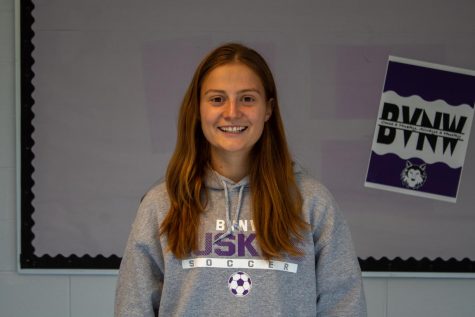
Megan Yates is a senior and the 2021-2022 Editor-In-Chief of “The Express.” She previously served as a staff writer and as the News Editor. Outside of newspaper, she is a member of the girls’ basketball and soccer teams. She is also involved with Student Government, National Honor Society, Spanish National Honor Society, Medical Club, KAY Club and Relay for Life. Megan’s favorite movies consist of classics such as “Talladega Nights” and “The Hangover.” Like most teenagers, Megan likes to hang out with friends, shop and bake cookies when stressed. Megan is ecstatic to serve as the EIC and hopes to continue to deliver high-quality journalism content to the Northwest community.


